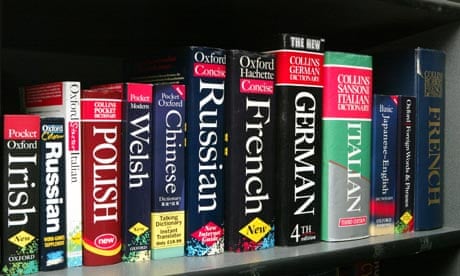A few years ago, I read a wonderful book which I thought few other people in the UK would take to, simply because it was in translation. I was so irritated by this notion that I wrote an article lamenting the failure of English-language readers (myself included) to accept books from other languages. The book was Hans Fallada's Alone In Berlin. It went on to sell more than 250,000 copies. Which proves just how wrong I can be.
Anyway, a few days ago, I was reminded of this demonstration of journalistic acumen when Michael Hoffman's new translation of Fallada's A Small Circus thumped onto my doormat. Given from my previous failure, I'm not going to try to augur how this book will do, except to note that it's equally interesting.
Describing a farmers' uprising in a provincial town in the final days of the Weimar Republic, it offers a frank and often brutal depiction of a society tipping over into chaos, methodically investigating each plank in the structure of social control and finding them all rotten. The local press are corrupt, compromised and ineffective. The local police are corrupt, compromised, ineffective, violent and dumb. The local politicians are either all of those things, or, worse still, quite smart but unable to do anything about the troubles assailing them. With the benefit of hindsight (the book was originally published in 1931) it can be read as a clear-sighted demonstration of how the ground was laid for National Socialism. When it was published, meanwhile, it was, according to one contemporary reviewer "so terribly genuine that it's frightening".
It's worth noting that that same reviewer (Kurt Tucholosky, writing in the Weltbuhne) also said that A Small Circus "is no great work of art". He was right. Like Alone In Berlin, A Small Circus is as gripping as it is horrifying – but it has rough edges and longueurs. It also lacks some of the later book's relentless focus; sometimes, Fallada seems to be flailing helplessly in his floods of characters, side-plots, and political intrigues. Yet even if the chaos threatens to overwhelm the author, he just about remains afloat. There's no doubt that this is a compelling book … and I said I shan't make any predictions, so that's that.
One thing I am wondering, however, is if we in the English-speaking world are becoming better at understanding the value of good translated literature. In that earlier article, I noted that "although around 60% of all translations are taken from the English language, English readers take only around 2-3% of their books from other languages". I haven't been able to find contradictory figures, but anecdotal evidence suggests that the imbalance is becoming less marked. Stieg Larsson continues to sell by the bucketload; Roberto Bolaño is ever more revered; new imprints such as Gallic Books, focusing exclusively on translation, are thriving. In the meantime, the exemplary New York Review Books has brought out so many translations of such high quality that a serious reader could take in nothing else for years and still feel entirely satisfied.
Coincidentally, one such came through my postbox on the same day as the Hans Fallada: The Adventures Of Sindbad by Gyula Krudy, translated by George Szirtes. Although Szirtes says in the introduction that the book is a "literary cult" in Hungary and has been a bestseller there for more than a century – and although his translation has also been available for more than 10 years (the NYRB version is simply a new edition), I'd never heard of it. But that made the surprise of leafing through all the more splendid; its foreignness even more intriguing.
It's a collection of short and sweet stories, describing (as the title suggests) the adventures of one Sindbad, a centuries-old vagabond and ladies' man, living (and occasionally dead – it's an odd book) in the declining years of Hungarian power, before the first world war and the collapse of the Austro-Hungarian empire. The first thing to notice (and Szirtes' translation must partly be to thank here) is how beautifully it is written. The prose drips autumnal richness: colourful, sensual descriptions; a sense of warmth and languor, of plenty and fruitfulness. True to autumn, there is also an awareness of imminent loss; a foreknowledge of a long, cold winter to come. Everywhere there is nostalgia, rarely directly stated, but evocatively suggested in passages such as the following:
The steps leading to that altar had been trodden by bishops in velvet slippers. How is one's heart to remain unaffected by the knowledge that the earnest prayers of men and women had fluttered from their souls like tiny butterflies compounded of sighs, and were even now covering the columns and vaults above so that barely a pinhead of vacant space remained between them.
It's heady stuff – but offset by flashes of mischief. "What did Sindbad like?" we are asked at the start of one story. "He liked snowdrifts and women's legs." And who could blame him? Well, maybe some: as Szirtes notes in his introduction, many of Sindbad's activities and ideas might be distasteful to a modern audience. Few, for instance, would agree that "one should treat the majority of well-disposed females with tenderness, as one would treat a child." But Sindbad is such a charmer, and so wrapped up in his lost, magical realm that he is easy to forgive. Like A Small Circus, but for very different reasons, I would recommend The Adventures Of Sindbad to anyone.
And since these two books have brought translated fiction to mind again, I thought it might be interesting to reprise the final question of my earlier article. What else have we been missing? Which other gems are out there waiting to be uncovered? Which other translations should we be looking out for? And what is going to be the next Hans Fallada-style hit? Over to you.

Comments (…)
Sign in or create your Guardian account to join the discussion